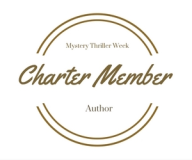P3
The Ancient Romans knew that if all roads were eventually going to lead to Rome that they were going to need a little outside help in making it happen. Creating or redesigning large public works systems is no easy, or cheap, feat. Sometimes a government just doesn’t have the available cash on hand or sufficient financial health to issue bonds.
Enter public private partnerships, or P3 which is a collaboration between a government entity and a private company to provide a public benefit, generally costly improvements involving infrastructure such as bridges, turnpikes, convention centers or other large public works system. The parties work together to finance and build the project and the government shares in the revenue stream with its private partner. A win-win, right?
The benefits to a public-private collaboration include increased knowledge and efficiency through reduced delays and faster project completion, and additional expertise which leads to better problem-solving capabilities because you’ve just doubled down on resources. You may also see a better ROI, return on investment: by bringing a project in on time and sharing the cost between the company and the government, the taxpayer burden has been reduced. The downside is that both the government and the private company give up complete control of the project and must work together which may be difficult for two entities with a wholly different MO (modus operandi).
Public-private partnerships, or P3, are not as common in the U.S. as they are in Australia, Canada, and some European countries, but as our water infrastructure continues to crumble here in the U.S., and communities struggle to fix their aging systems — a multi billion dollar price tag at least — I suspect we will see the rise of this particular hybrid simply because the government does not have the resources available to keep up while still assuring public safety.
Let’s focus on our own backyards for a moment. What if this lovely collaborative process was turned on its head, and instead of macro projects we created micro projects, smaller, but no less important public works that facilitate a common greater good? I’m thinking small urban and suburban sustainability projects like rain gardens, bioswales and stormwater planters (rain gardens in a box) — and big ones work, too, as was the case with Costco and Culver City, California and their P3, building underground water storage tanks to ultimately reduce stormwater runoff in LA — that create more green space, allow flood waters more residence time, assure water conservation and security, and ultimately beautify our living spaces. Sounds like everyone benefits, right?
Somebody with a business degree needs to get on this. Email me if you need help formulating a few ideas.
Today is Day 16 of the #AtoZ Blog Challenge. Whoop! Whoop! Whoop!
pamlazos 4.18.19













Considering our own street street problems (the water problems are moreso elsewhere), you’d think small-scale solutions would go over better just because it’d be cheaper. Go by community, you know? And after a while those communities make a county, and the counties make a state, and teh states…
LikeLiked by 1 person
And then there’s no need for the cheese to stand alone!😂😂😂
LikeLiked by 1 person
🙂
LikeLiked by 1 person
Our roads are so bad in Michigan that there has been no solution, so our new Governor is raising the gas tax $0.45 over 18 months (every six months will be a $0.15 increase). She had to come up with a plan as she won the election last November based on her campaign motto that she would “fix the d*mn roads!”
LikeLiked by 1 person
It’s a never ending sink hole of costs, fixing macadam, especially with frost heave. Hopefully someone will invent a permeable surface that stands up to changes in temperatures with a long shelf life.
LikeLiked by 1 person
Yes, I hope so. too Pam. We have had pieces of the expressway disintegrate right down to the rebar. Suddenly the concrete falls apart and you can see through to the neighborhoods below.
LikeLiked by 1 person
Oh no, very scary. 😩
LikeLiked by 1 person
Interesting concept. We did something similar with our highways in Gauteng… It turned into people boycotting the roads because we now have e-toll instead of toll gates. Yeah. Now other roads are full of traffic (potholes and other uglies) and the renovated highways aren’t used as much as they should be. I’m so grateful that I don’t have to commute anymore!
Ronel visiting from the A-Z Challenge with Music and Writing: More, Please
LikeLiked by 1 person
Wow, that sounds messed up, huh? People not using the good roads.😩
LikeLiked by 1 person